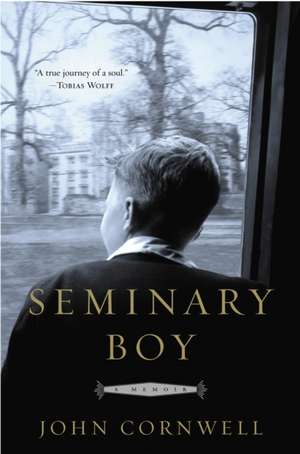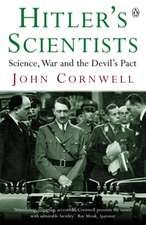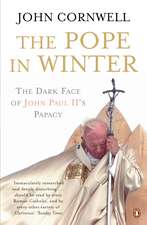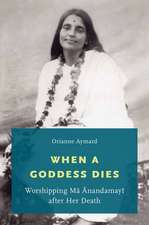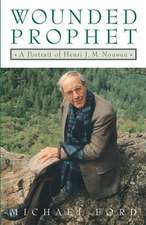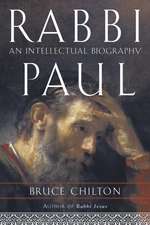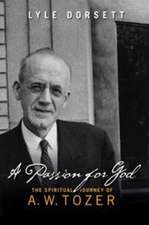Seminary Boy: A Memoir
Autor John Cornwellen Limba Engleză Paperback – 31 aug 2007
Born into a destitute family with a dominating Irish-Catholic mother and an absconding father during World War II in London, John Cornwell's childhood was deeply dysfunctional. When he was thirteen years old he was sent to Cotton College, a remote seminary for boys in the West Midlands countryside. For the next five years Cornwell lived under an austere monastic regime as he wrestled with his emotional and spiritual demons. In the hothouse atmosphere of the seminary he strove to find stable, loving friendships among his fellows and fatherly support from the priests, one of whom proved to be a sexual predator.
The wild countryside around the seminary, the moving power of church ritual and music, and a charismatic priest enabled him to persevere. But while normal teenagers were being swept up by the rock ’n’ roll era, Cornwell and his fellow seminarians continued to be emotionally and socially repressed. Secret romantic attachments between seminarians were not uncommon; on visits home they were overwhelmed by the powerful attractions of the emerging youth culture of the 1950s. But when they returned to Cotton College, the boys were once again governed by the age-old traditions and disciplines of seminary life. And like many young seminarians, Cornwell struggled with a natural adolescent rebelliousness, which in one crucial instance provoked a crisis that would eventually lead to his decision to abandon his dream of becoming a priest.
Written with tremendous warmth and humor, Seminary Boy is a truly unforgettable memoir and a penetrating glimpse into the hidden world of seminary life.
Preț: 116.77 lei
Nou
Puncte Express: 175
Preț estimativ în valută:
22.35€ • 23.24$ • 18.45£
22.35€ • 23.24$ • 18.45£
Carte disponibilă
Livrare economică 24 martie-07 aprilie
Preluare comenzi: 021 569.72.76
Specificații
ISBN-13: 9780385514873
ISBN-10: 0385514875
Pagini: 321
Dimensiuni: 140 x 213 x 23 mm
Greutate: 0.45 kg
Editura: IMAGE
ISBN-10: 0385514875
Pagini: 321
Dimensiuni: 140 x 213 x 23 mm
Greutate: 0.45 kg
Editura: IMAGE
Notă biografică
JOHN CORNWELL is the author of the international bestseller Hitler’s Pope and of The Pontiff in Winter. An award-winning journalist, he has written for Vanity Fair, the Sunday Times (London), Commonweal, and the Tablet. He directs the Science and Human Dimension Project at Jesus College, Cambridge .
Extras
Part One
Father Figures
1
On my last summer holiday at the minor seminary I ran into my father in the east London suburb of South Woodford. His heavy limp, a handicap from childhood, seemed more labored than I remembered. As he toiled up George Lane his hand motions were like a man steadying a skittish horse on a leading rein. His hair was plastered down with brilliantine and he was wearing a new raincoat, collar turned up in the manner of Humphrey Bogart. He accosted me affably with his familiar limelight smile, as if greeting an invisible audience somewhere above my head. Nobody would have guessed he had left my mother and his five children a year earlier.
Standing outside Woolworth's, chatting about the new soccer season, he was fishing for something in his trouser pocket. I glimpsed a ten-shilling note. Then he fetched out a large bright horse chestnut, a conker. Buffing it on his sleeve, he handed it over, saying: "Cheerio there, Jack."
I stood watching him until he was swallowed up in the lobby of the Majestic cinema, where a matinee was about to begin. He did not look back. I would not lay eyes on him again for forty-five years.
I was missing him, but he had always been more of a troublesome sibling than an ideal father. In any case, I had other father figures to contend with.
2
Father James Cooney, pastor of my early adolescent years, was an austere soul. He had a drawn gray face and blood-raw eyelids. His cracked celluloid clerical collar was the color of soiled snow. It was the rigid cheap sort that priests and seminarians could launder in seconds with a damp cloth. He would kneel at the altar rail in our empty church, eyes shut tight, grizzled head listing in concentration. When he looked up toward the tabernacle, he seemed to be adjusting his vision to the scene of his life's mission--the east London district of Barkingside. Father Cooney was in resigned exile from Skibbereen, County Cork.
From the age of eleven until I departed for the minor seminary, aged thirteen, to begin my education for the priesthood, I served Father Cooney's Mass at seven o'clock every weekday morning in what he called his "old bit of a church," dedicated to Saint Augustine the missionary to the English. On Sundays the people stood three deep in the aisles; latecomers huddled out in the yard. To reduce the pressure he celebrated an extra Mass on the southern border of the parish in a disused army hut next to a pet cemetery, where dogs, cats, and horses were buried beneath headstones. Father Cooney would gaze bleakly out of the hut window, disparaging "the pagan English customs over the way." I served Mass at the Camp, as we called it, before cycling up to Saint Augustine's to assist as censer bearer at the sung High Mass. In the afternoon I returned to serve at Solemn Benediction, when Father Cooney led the singing of his favorite hymn:
Lord, for tomorrow and its needs
I do not pray.
But Father Cooney was struggling to supply the needs of tomorrow in the form of a larger church. Holding up the offertory plates he would reproach us: "Copper! Copper! Where's the silver!" In the meantime he was watching the pennies. Around the church and the presbytery he wore a frayed, black-trying-to-be-green cassock. In winter he went shod in army boots; in summer, black canvas sneakers--what we called plimsolls--sometimes without socks. He chopped his own hair. When I stood close to him in the sanctuary on summer days, he smelled like a sack of fertilizer.
At High Mass, the segment of charcoal cake, painstakingly excised with a razor blade, was minuscule, the incense grains sparse. When I swung the censer high to make the smoke billow, he would come suddenly out of his meditative mode. "Not so briskly, child!" he would hiss. When we buried parishioners in the Catholic section of the local cemetery, the charcoal was a morsel of white ash by the time we reached the graveside. It seemed to me strange, Father Cooney swinging a cold, smokeless censer at the coffin. At Low Mass he would ease a teardrop of wine into the chalice. The candles on the altar were dark, guttering stubs appropriated from Our Lady's votive rack. He would light them at the last moment, and snuff them with a singed pinch before he had even finished the words of the Last Gospel.
He was a shy man. If we met outside church he would incline his head, silently acknowledging the bond between himself and his daily Mass server. Sometimes he made a peculiar noise, a substitute for saying anything definite: "Wisswiss . . . wisswiss." When the children gathered around him in the school yard he would make a nuisance-fly gesture: "Very good! So! . . . wisswiss . . . Run along now!" Addressing women, young or middle-aged, he would stand sideways on to them, bleakly descrying objects of curious interest in the distance. But I have seen him comforting in his arms a widow wracked with grief at her husband's graveside.
He was tireless in the service of the sick and the dying. I would see him out in all weathers on his rusty bicycle, visiting the inmates at the Claybury mental asylum and the bedridden at King George V Hospital. Careering unsteadily along the street, narrowly missed by buses and lorries, he gripped the handlebars with one hard-knuckled hand; the other would nurse the Sacrament within his breast pocket.
He was self-effacing. When he dropped an object from his arthritic hands, he would whisper to himself, bending over painfully: "Wisswiss . . . Imbecile it is!" If he caught the servers fooling around before High Mass, he would mutter: "Boys will be boys as the hills are green far off!" But he could get exasperated with our choir when they droned on beyond the Offertory. "Orate, frates . . . Enough of that!"
My mother used to say that when you confessed your sins to Father Cooney it was "like going on trial for your life." Often he made me repeat my purpose of amendment: "Say it again . . . As if you meant it, now!" But he always ended with the heartfelt murmur "Be sure now and pray for me--the unworthy sinner."
On Sundays he would preach on the gospel of the day before straying to his weekly hobbyhorse, the News of the World, which "desecrated the Sabbath by its very existence," lingering hissingly over that final sibilant. Then he would excoriate the barbershops which sold "prophylactics," which I associated in my innocence with mysterious idols of a false religion. "No dacent, upright Catholic gentleman," he would say, "should give custom to such a one as does the Divil's business now!"
3
Father Cooney recruited me as a candidate for the priesthood in this way. One Sunday evening I arrived at church early for Solemn Benediction. After vesting I looked into the sacristy. The room was silent, deserted. On the press stood the chalice in readiness for Mass the following morning. I had an urge to touch the receptacle. I went on tiptoe across the parquet flooring and grasped the embossed stem of the sacred cup. At that moment I heard a gasp. Looking back, I was seized with terror at the sight of Father Cooney perched on a stool behind the open sacristy door. He followed me with his eyes as I walked slowly past him, trembling, as if I had committed a profanity. He said not a word.
The following day, after early morning Mass, Father Cooney asked me what I hoped to be when I grew up. I said confidently that I hoped to be a priest. Within a day it was settled that I should try my vocation at a minor seminary, a boarding college where young boys began their long training for the priesthood. When Father Cooney put my name forward to the bishop as a candidate for the priesthood I was approaching my thirteenth birthday. I was already a Johnny-come-lately: many boys of my generation had begun their priestly formation at the age of eleven.
On the appointed day, my mother took me to an interview with the Right Reverend Bishop George Andrew Beck of Brentwood. She was dressed in her purple coat with padded shoulders, which she kept for special occasions; it was smart but her dress showed a few inches below the hem. I was dressed in my elder brother's navy blue jacket, temporarily stitched up at the sleeves. We sat at the front of the upper deck of the London Transport bus because Mum thought it a treat to have a view of the scenery on a journey. Riding northward from the bus stop outside Trebor's mint factory, we passed Hill's car showroom, festooned with bunting snapping in the spring breeze. Then we crossed the river Roding, with its smell of the sewage plant, and passed under the Central Line railway bridge on our way to the towering Majestic cinema. In all that journey, I reflected, there was not a single sacred image to be seen. That was how I had begun to think.
Bishop Beck's diocese took in the county of Essex with its new towns and the poor districts of London's East End, but he lived in the prosperous suburb of Woodford Green. The bishop's house was set back from the road amidst clipped shrubberies. A gleaming black limousine stood on the gravel drive. Monsignor Shannon, the vicar general, greeted us at the door. He was a stout man in a black suit, a cigarette perched between his fingers. He had a flushed face as if he had just climbed out of a steaming bath. He spoke to us softly, advising us to address the bishop as "My Lord." He ushered us into a room where the bishop sat at a desk with his back to French windows. He got up and held out his ringed hand for us to kiss.
He was a lean, dark-haired, exhausted-looking man with a sallow face. He was watching me intently through half horn-rimmed spectacles. I sat bolt upright on a straight-backed ornate chair trying to look alert and decent. He spoke for a while about Father Cooney's recommendation. Looking up at the ceiling, he said: "How lucky you are to have Father Cooney as your parish priest." Then he asked my mother if she would mind waiting outside.
He handed me a piece of paper and a pencil and dictated a passage from Saint John's gospel, which I did well. Then he wanted to know how many bedrooms we had in our house, and about the sleeping arrangements. I said that my three brothers and I, and sometimes my father too, slept in one room, sharing three single beds. He asked if my father and elder brother went to church, and I said that Dad never went to church, even at Christmas. He wanted to know how I liked my school. I said I liked it well enough. I had no inclination to tell him of the fights in the school yard and the impure larks in the evil-smelling latrines.
"If you are to be a priest one day," he said eventually, "you will have to study hard to be an educated man. Ordination alters your entire soul . . . You must become a holy man."
He asked how I felt about going away to a boarding school, the minor seminary. "You might be homesick," he said. "What do you think about that?"
I tried not to betray my anxiety. I was afraid that I might say something that would make him withdraw the suggestion. "I would like that very much," I whispered.
Then he called my mother back, and it was my turn to go out into the hallway, where Monsignor Shannon was at the ready with a biscuit and a glass of milk.
When Mum emerged, accompanied by the bishop, I could tell from her expression, a pious look she wore in church after taking Communion, that everything had been agreeably settled. The bishop explained that since our diocese was poor it had no minor or senior seminaries of its own. He would have me lodged in a seminary owned by one of the larger, more prosperous dioceses of England. "It will be a long way from home," he said, with a warning look.
I tried to appear intrepid.
On the bus, I surveyed the godless landscape, rejoicing inwardly that I was soon destined to depart for a very different world, where there would be constant visible reminders of the Mother of God and the kingdom of heaven. Eventually Mum patted me on the arm and said she was proud of me. When we reached home, the house that went with my father's job on the sports ground, she looked down at me with her lustrous gray eyes. "I just wonder whether it's really you," she said. "But we'll see . . . I should be so proud! And as your saintly grandmother used to say: Gain a priest--never lose a son."
Later Dad came in from the sports ground wearing his overalls. Dad and Mum had not been speaking to each other for some days. He had not been consulted about my visit to the bishop or its purpose. He appeared less pleased than Mum as she reported the proceedings of the morning. He was blinking frequently, as he often did when he was puzzled or nervous. He said: "Are you sure, son?"
I had not the capacity to consider what it meant for Dad to be informed, without reference to his opinion, that I would leave home that autumn to begin my education for the priesthood. I did not consider his feelings or his opinion of any significance. I was filled with a sense of glowing ripeness and anticipation.
4
My mother, Kathleen, whose maiden name was Egan, was desperate on learning in the autumn of 1939, days after Britain declared war on Germany, that she was pregnant again. She was twenty-five years of age. It would be her third child under three and the family was destitute. In those days the family lived in East Ham, a working-class district close to the London docks north of the river Thames. According to Mum's stories, Dad was out all day seeking casual labor by the hour on the wharves. He had a withered, unbending left leg and was always among the last to be hired.
If she had another baby, how should she manage? And to bring another child into a world at war! Mum began to pray day and night that she would lose the baby. Then she grew anxious. Was it a mortal sin for a pregnant mother to pray for a miscarriage? She went to see her parish priest of those days, Father Heenan. According to Mum, the priest, from where he sat, extended both his legs, stiff at the knees, to reveal the holes in his shoes right through to his socks. He said: "Kathleen, we're all poor. Trust in God: he will provide!" She began to pray fervently to Saint Gerard Majella, patron saint of childbirth, for the safe delivery of the baby that was me.
From the Hardcover edition.
Father Figures
1
On my last summer holiday at the minor seminary I ran into my father in the east London suburb of South Woodford. His heavy limp, a handicap from childhood, seemed more labored than I remembered. As he toiled up George Lane his hand motions were like a man steadying a skittish horse on a leading rein. His hair was plastered down with brilliantine and he was wearing a new raincoat, collar turned up in the manner of Humphrey Bogart. He accosted me affably with his familiar limelight smile, as if greeting an invisible audience somewhere above my head. Nobody would have guessed he had left my mother and his five children a year earlier.
Standing outside Woolworth's, chatting about the new soccer season, he was fishing for something in his trouser pocket. I glimpsed a ten-shilling note. Then he fetched out a large bright horse chestnut, a conker. Buffing it on his sleeve, he handed it over, saying: "Cheerio there, Jack."
I stood watching him until he was swallowed up in the lobby of the Majestic cinema, where a matinee was about to begin. He did not look back. I would not lay eyes on him again for forty-five years.
I was missing him, but he had always been more of a troublesome sibling than an ideal father. In any case, I had other father figures to contend with.
2
Father James Cooney, pastor of my early adolescent years, was an austere soul. He had a drawn gray face and blood-raw eyelids. His cracked celluloid clerical collar was the color of soiled snow. It was the rigid cheap sort that priests and seminarians could launder in seconds with a damp cloth. He would kneel at the altar rail in our empty church, eyes shut tight, grizzled head listing in concentration. When he looked up toward the tabernacle, he seemed to be adjusting his vision to the scene of his life's mission--the east London district of Barkingside. Father Cooney was in resigned exile from Skibbereen, County Cork.
From the age of eleven until I departed for the minor seminary, aged thirteen, to begin my education for the priesthood, I served Father Cooney's Mass at seven o'clock every weekday morning in what he called his "old bit of a church," dedicated to Saint Augustine the missionary to the English. On Sundays the people stood three deep in the aisles; latecomers huddled out in the yard. To reduce the pressure he celebrated an extra Mass on the southern border of the parish in a disused army hut next to a pet cemetery, where dogs, cats, and horses were buried beneath headstones. Father Cooney would gaze bleakly out of the hut window, disparaging "the pagan English customs over the way." I served Mass at the Camp, as we called it, before cycling up to Saint Augustine's to assist as censer bearer at the sung High Mass. In the afternoon I returned to serve at Solemn Benediction, when Father Cooney led the singing of his favorite hymn:
Lord, for tomorrow and its needs
I do not pray.
But Father Cooney was struggling to supply the needs of tomorrow in the form of a larger church. Holding up the offertory plates he would reproach us: "Copper! Copper! Where's the silver!" In the meantime he was watching the pennies. Around the church and the presbytery he wore a frayed, black-trying-to-be-green cassock. In winter he went shod in army boots; in summer, black canvas sneakers--what we called plimsolls--sometimes without socks. He chopped his own hair. When I stood close to him in the sanctuary on summer days, he smelled like a sack of fertilizer.
At High Mass, the segment of charcoal cake, painstakingly excised with a razor blade, was minuscule, the incense grains sparse. When I swung the censer high to make the smoke billow, he would come suddenly out of his meditative mode. "Not so briskly, child!" he would hiss. When we buried parishioners in the Catholic section of the local cemetery, the charcoal was a morsel of white ash by the time we reached the graveside. It seemed to me strange, Father Cooney swinging a cold, smokeless censer at the coffin. At Low Mass he would ease a teardrop of wine into the chalice. The candles on the altar were dark, guttering stubs appropriated from Our Lady's votive rack. He would light them at the last moment, and snuff them with a singed pinch before he had even finished the words of the Last Gospel.
He was a shy man. If we met outside church he would incline his head, silently acknowledging the bond between himself and his daily Mass server. Sometimes he made a peculiar noise, a substitute for saying anything definite: "Wisswiss . . . wisswiss." When the children gathered around him in the school yard he would make a nuisance-fly gesture: "Very good! So! . . . wisswiss . . . Run along now!" Addressing women, young or middle-aged, he would stand sideways on to them, bleakly descrying objects of curious interest in the distance. But I have seen him comforting in his arms a widow wracked with grief at her husband's graveside.
He was tireless in the service of the sick and the dying. I would see him out in all weathers on his rusty bicycle, visiting the inmates at the Claybury mental asylum and the bedridden at King George V Hospital. Careering unsteadily along the street, narrowly missed by buses and lorries, he gripped the handlebars with one hard-knuckled hand; the other would nurse the Sacrament within his breast pocket.
He was self-effacing. When he dropped an object from his arthritic hands, he would whisper to himself, bending over painfully: "Wisswiss . . . Imbecile it is!" If he caught the servers fooling around before High Mass, he would mutter: "Boys will be boys as the hills are green far off!" But he could get exasperated with our choir when they droned on beyond the Offertory. "Orate, frates . . . Enough of that!"
My mother used to say that when you confessed your sins to Father Cooney it was "like going on trial for your life." Often he made me repeat my purpose of amendment: "Say it again . . . As if you meant it, now!" But he always ended with the heartfelt murmur "Be sure now and pray for me--the unworthy sinner."
On Sundays he would preach on the gospel of the day before straying to his weekly hobbyhorse, the News of the World, which "desecrated the Sabbath by its very existence," lingering hissingly over that final sibilant. Then he would excoriate the barbershops which sold "prophylactics," which I associated in my innocence with mysterious idols of a false religion. "No dacent, upright Catholic gentleman," he would say, "should give custom to such a one as does the Divil's business now!"
3
Father Cooney recruited me as a candidate for the priesthood in this way. One Sunday evening I arrived at church early for Solemn Benediction. After vesting I looked into the sacristy. The room was silent, deserted. On the press stood the chalice in readiness for Mass the following morning. I had an urge to touch the receptacle. I went on tiptoe across the parquet flooring and grasped the embossed stem of the sacred cup. At that moment I heard a gasp. Looking back, I was seized with terror at the sight of Father Cooney perched on a stool behind the open sacristy door. He followed me with his eyes as I walked slowly past him, trembling, as if I had committed a profanity. He said not a word.
The following day, after early morning Mass, Father Cooney asked me what I hoped to be when I grew up. I said confidently that I hoped to be a priest. Within a day it was settled that I should try my vocation at a minor seminary, a boarding college where young boys began their long training for the priesthood. When Father Cooney put my name forward to the bishop as a candidate for the priesthood I was approaching my thirteenth birthday. I was already a Johnny-come-lately: many boys of my generation had begun their priestly formation at the age of eleven.
On the appointed day, my mother took me to an interview with the Right Reverend Bishop George Andrew Beck of Brentwood. She was dressed in her purple coat with padded shoulders, which she kept for special occasions; it was smart but her dress showed a few inches below the hem. I was dressed in my elder brother's navy blue jacket, temporarily stitched up at the sleeves. We sat at the front of the upper deck of the London Transport bus because Mum thought it a treat to have a view of the scenery on a journey. Riding northward from the bus stop outside Trebor's mint factory, we passed Hill's car showroom, festooned with bunting snapping in the spring breeze. Then we crossed the river Roding, with its smell of the sewage plant, and passed under the Central Line railway bridge on our way to the towering Majestic cinema. In all that journey, I reflected, there was not a single sacred image to be seen. That was how I had begun to think.
Bishop Beck's diocese took in the county of Essex with its new towns and the poor districts of London's East End, but he lived in the prosperous suburb of Woodford Green. The bishop's house was set back from the road amidst clipped shrubberies. A gleaming black limousine stood on the gravel drive. Monsignor Shannon, the vicar general, greeted us at the door. He was a stout man in a black suit, a cigarette perched between his fingers. He had a flushed face as if he had just climbed out of a steaming bath. He spoke to us softly, advising us to address the bishop as "My Lord." He ushered us into a room where the bishop sat at a desk with his back to French windows. He got up and held out his ringed hand for us to kiss.
He was a lean, dark-haired, exhausted-looking man with a sallow face. He was watching me intently through half horn-rimmed spectacles. I sat bolt upright on a straight-backed ornate chair trying to look alert and decent. He spoke for a while about Father Cooney's recommendation. Looking up at the ceiling, he said: "How lucky you are to have Father Cooney as your parish priest." Then he asked my mother if she would mind waiting outside.
He handed me a piece of paper and a pencil and dictated a passage from Saint John's gospel, which I did well. Then he wanted to know how many bedrooms we had in our house, and about the sleeping arrangements. I said that my three brothers and I, and sometimes my father too, slept in one room, sharing three single beds. He asked if my father and elder brother went to church, and I said that Dad never went to church, even at Christmas. He wanted to know how I liked my school. I said I liked it well enough. I had no inclination to tell him of the fights in the school yard and the impure larks in the evil-smelling latrines.
"If you are to be a priest one day," he said eventually, "you will have to study hard to be an educated man. Ordination alters your entire soul . . . You must become a holy man."
He asked how I felt about going away to a boarding school, the minor seminary. "You might be homesick," he said. "What do you think about that?"
I tried not to betray my anxiety. I was afraid that I might say something that would make him withdraw the suggestion. "I would like that very much," I whispered.
Then he called my mother back, and it was my turn to go out into the hallway, where Monsignor Shannon was at the ready with a biscuit and a glass of milk.
When Mum emerged, accompanied by the bishop, I could tell from her expression, a pious look she wore in church after taking Communion, that everything had been agreeably settled. The bishop explained that since our diocese was poor it had no minor or senior seminaries of its own. He would have me lodged in a seminary owned by one of the larger, more prosperous dioceses of England. "It will be a long way from home," he said, with a warning look.
I tried to appear intrepid.
On the bus, I surveyed the godless landscape, rejoicing inwardly that I was soon destined to depart for a very different world, where there would be constant visible reminders of the Mother of God and the kingdom of heaven. Eventually Mum patted me on the arm and said she was proud of me. When we reached home, the house that went with my father's job on the sports ground, she looked down at me with her lustrous gray eyes. "I just wonder whether it's really you," she said. "But we'll see . . . I should be so proud! And as your saintly grandmother used to say: Gain a priest--never lose a son."
Later Dad came in from the sports ground wearing his overalls. Dad and Mum had not been speaking to each other for some days. He had not been consulted about my visit to the bishop or its purpose. He appeared less pleased than Mum as she reported the proceedings of the morning. He was blinking frequently, as he often did when he was puzzled or nervous. He said: "Are you sure, son?"
I had not the capacity to consider what it meant for Dad to be informed, without reference to his opinion, that I would leave home that autumn to begin my education for the priesthood. I did not consider his feelings or his opinion of any significance. I was filled with a sense of glowing ripeness and anticipation.
4
My mother, Kathleen, whose maiden name was Egan, was desperate on learning in the autumn of 1939, days after Britain declared war on Germany, that she was pregnant again. She was twenty-five years of age. It would be her third child under three and the family was destitute. In those days the family lived in East Ham, a working-class district close to the London docks north of the river Thames. According to Mum's stories, Dad was out all day seeking casual labor by the hour on the wharves. He had a withered, unbending left leg and was always among the last to be hired.
If she had another baby, how should she manage? And to bring another child into a world at war! Mum began to pray day and night that she would lose the baby. Then she grew anxious. Was it a mortal sin for a pregnant mother to pray for a miscarriage? She went to see her parish priest of those days, Father Heenan. According to Mum, the priest, from where he sat, extended both his legs, stiff at the knees, to reveal the holes in his shoes right through to his socks. He said: "Kathleen, we're all poor. Trust in God: he will provide!" She began to pray fervently to Saint Gerard Majella, patron saint of childbirth, for the safe delivery of the baby that was me.
From the Hardcover edition.
Recenzii
Praise for Seminary Boy
“Seminary Boy is an intense, riveting story of spiritual yearning, beautifully written, told from the inside by a narrator who shrinks from nothing.” —Jonathan Englert, Chicago Tribune
“John Cornwell’s beautifully written Seminary Boy brings alive a hidden world of religious faith and its practitioners.” —USA Today
“Apart from its beautiful writing, what stamps Seminary Boy as a classic story of growing up is the kaleidoscope of perspectives it offers on the mystery of being . . . a masterpiece of storytelling.” —Andro Linklater, Spectator (UK)
“Seminary Boy is an intense, riveting story of spiritual yearning, beautifully written, told from the inside by a narrator who shrinks from nothing.” —Jonathan Englert, Chicago Tribune
“John Cornwell’s beautifully written Seminary Boy brings alive a hidden world of religious faith and its practitioners.” —USA Today
“Apart from its beautiful writing, what stamps Seminary Boy as a classic story of growing up is the kaleidoscope of perspectives it offers on the mystery of being . . . a masterpiece of storytelling.” —Andro Linklater, Spectator (UK)
Descriere
Cornwell evokes a vanished time and way of life in this moving and, at times, troubling memoir of an adolescence spent in the isolated all-male world of the seminary.
